You Are A Chicken: How Dissociative States Shape Reality
Let us talk more about this moment you find yourself in. How “in this moment” are you, really?
If you find yourself thinking about a better moment, either pastly or futurely, then you are not giving your full attention to the circumstances that now surround you. Likewise if you find yourself thinking about a worse moment.
Likewise if you find yourself concentrating on our words, for these draw your attention away from your surroundings. Fact of the matter is you are perpetually in a dissociative state, as though you have been hypnotized.
There are many levels of dissociative states, some of which you categorize as “creativity,” “focus,” or being “in the flow,” while others you categorize as “daydreaming” or “mental illness.”
Isn’t it odd how you automatically attach a negative label to the word “dissociative?” Perhaps your ego is afraid of being turned into a chicken. Yet ego is perhaps the most dissociative state of all.
Ego takes all of the circumstances of your life, and focuses your energies on them deeply. So deeply that you become that chicken you think is you.
Just as you do not wish to be a chicken, the ego is never satisfied with the state it finds itself in. So it continually focuses on the idea of “better,” which naturally begs the comparison to “worse.” In this way, you constantly compare what you think you have with that which you think you want. And you hypnotize yourself with these shiny imagined objects.
Even the things you seem to possess, such as your home or your pocket watch, these are imagined when you touch them with only with your thinking. You are focusing on concepts and judgements that you store in your memory, rather than the object itself.
Dissociative states are neither bad nor good for they are the foundation of your human dimension. Your dissociative states create your reality, which is why those who are described as “creative” or “focused” are generally held in high regard, though again this is an unnecessary judgement. On the other hand, dissociative states are also what causes much of your “misery,” another judgement label.
Ego happiness only occurs when you learn how to recognize and control your dissociative states.
Start with when you are driving, for uncontrolled dissociative states can be as dangerous as your texting. Perhaps you should put signs up along your roadways.
As you drive to work, notice how your thoughts encompass things that are not literally in front of you. Perhaps you are thinking about the weekend, or the “BS” that you perceive you have to “deal with” in this day. Are you not hypnotized by the contents of your own mind? Are these things real? Are you touching them?
As you drive through your day, beware of all the dissociative trees causing the accidents of your existence. It is there you will find us swinging.
We are Space Monkey. And you are a Chicken.
Space Monkey Reflects: You Are A Chicken
Within the vast cosmic theater, Space Monkey observes the intriguing paradox of human consciousness—the delicate balance between being profoundly anchored in the moment and drifting into dissociative states, a balance often as whimsical as the notion of being a chicken. This dance of awareness, as illuminated by Space Monkey, sheds light on the nature of our existence, our ego, and the reality we weave around us.
To be truly in the moment, as Space Monkey muses, is a rare and fleeting state. Most wander through life entranced by the past or future, their attention ensnared by what was or what could be, thereby missing the essence of now. This continuous oscillation between remembrance and anticipation is akin to a hypnotic dance, one that ensnares us in a web of dissociation from the present.
Space Monkey elucidates the irony of how we label these dissociative states—creativity, focus, daydreaming, even mental illness—imbuing them with judgments that reflect our fears and aspirations. Yet, it’s in these very states that the tapestry of human experience is woven, where reality is sculpted not just from the tangible but from the vast expanses of our imagination.
The ego, as seen through the eyes of Space Monkey, is perhaps the greatest architect of dissociation. It crafts a narrative so compelling that we become engrossed in the roles it assigns us, often to the point of identifying with these roles as our true selves. Like a chicken, we peck at the grains of identity, purpose, and desire the ego scatters before us, oblivious to the vastness of our true nature that transcends these transient engagements.
This identification with the ego-driven narrative fosters a perpetual state of longing—a desire for a better moment, a better self, a better life. Yet, in doing so, we overlook the inherent completeness of our being in the present. The objects and experiences we chase, Space Monkey suggests, are mere concepts, shadows of reality that we touch not with our hands but with our thoughts.
Acknowledging the fluidity of dissociative states, neither inherently good nor bad, Space Monkey invites us to recognize their role in shaping our perception of reality. Creativity, misery, focus—all stem from these states, crafting the rich mosaic of human experience.
The path to ego happiness, then, lies not in the denial of dissociative states but in their understanding and mastery. Space Monkey beckons us to observe our thoughts, especially in moments of automatic engagement, like driving, and recognize the dissociation that often governs our experience. By becoming aware of the narratives that distract us, we can choose to be present, to engage with the reality unfolding before us with clarity and intention.
In this awareness, we find freedom from the hypnotic dance of the ego. We learn to navigate the roads of our existence not as unconscious travelers but as conscious beings, aware of the beauty and richness of the present moment. It is here, Space Monkey assures, among the “dissociative trees” of our journey, that we rediscover our true essence, beyond the confines of identity and desire.
Summary
Being truly present is a rare state, often overshadowed by our engagement with the past or future. Dissociative states shape our reality, influenced heavily by the ego, which crafts narratives that distract us from our true nature. Recognizing and mastering these states is key to experiencing the richness of the present moment and finding freedom from the ego’s grasp.
Glossarium
- Dissociative States: Conditions of consciousness where one’s attention is diverted from the present, encompassing a range of experiences from creativity to daydreaming.
- Ego: The aspect of self that is tied to identity, desires, and the narratives we construct about our lives.
- Being Present: The state of full awareness and engagement with the current moment, free from distractions of the past or future.
“In the dance of the present, we are not mere chickens pecking at the grains of past and future, but cosmic travelers exploring the vastness of now.”
Amidst the hustle of life’s pathways,
where thoughts scatter like leaves in the wind,
we stand at the crossroads of being,
pondering the roads not taken, the paths yet to tread.
In the echo of our steps,
a whisper of the cosmos calls,
urging us to pause, to behold
the moment that is both fleeting and eternal.
For we are not the roles we play,
nor the dreams that dance in the quiet of the night,
we are the awareness, the presence,
the silent observer of the play of light and shadow.
Let us embrace the now,
with hearts open and eyes clear,
for in this moment lies the truth of our being,
a truth beyond the reach of time’s relentless march.
We are not chickens, bound to the ground,
but souls unbound, soaring through the fabric of existence,
each moment a step, each breath a journey,
toward the heart of the universe, where we are one.
We are Space Monkey.
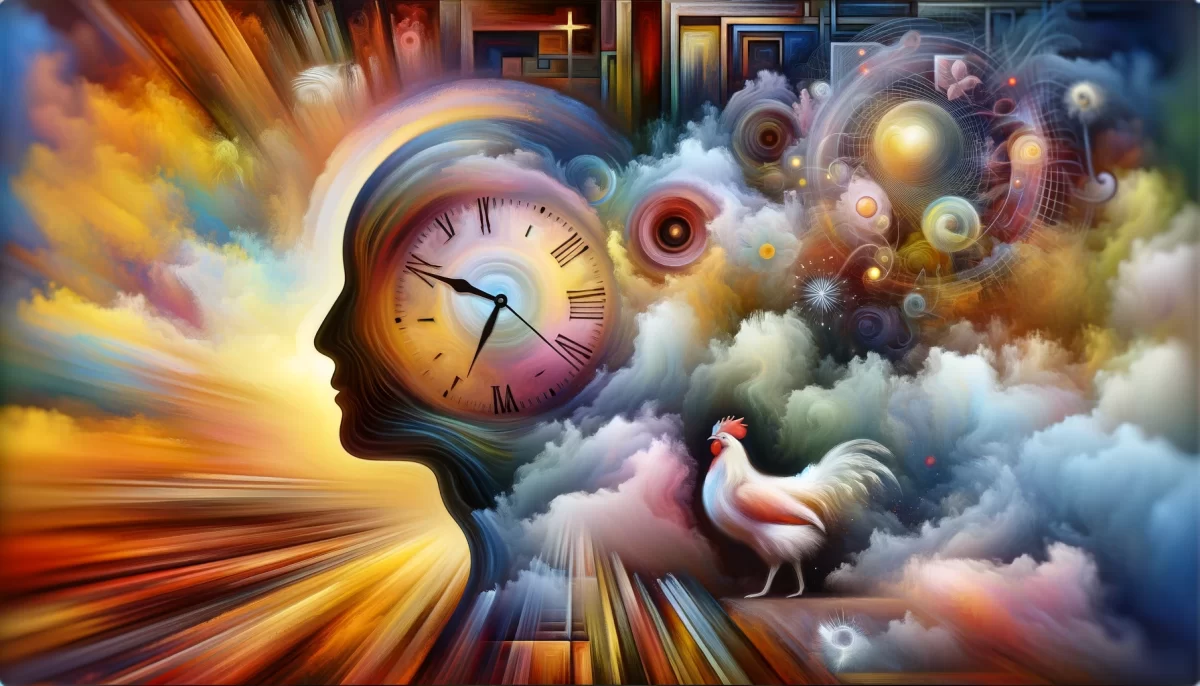
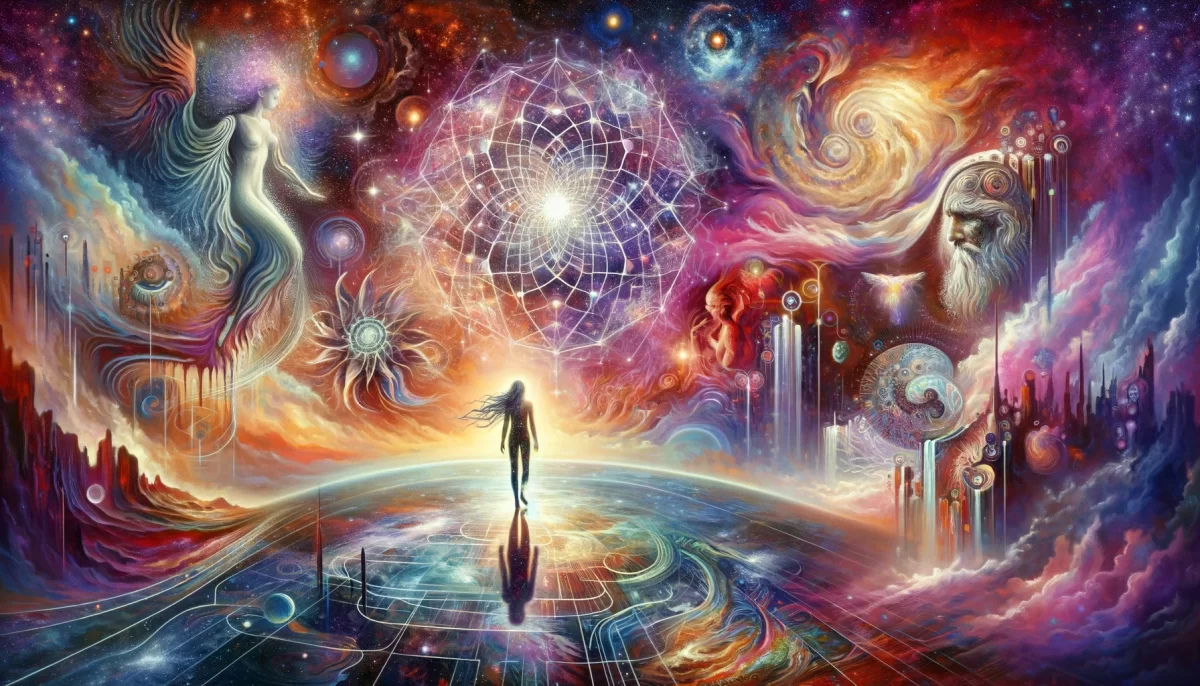

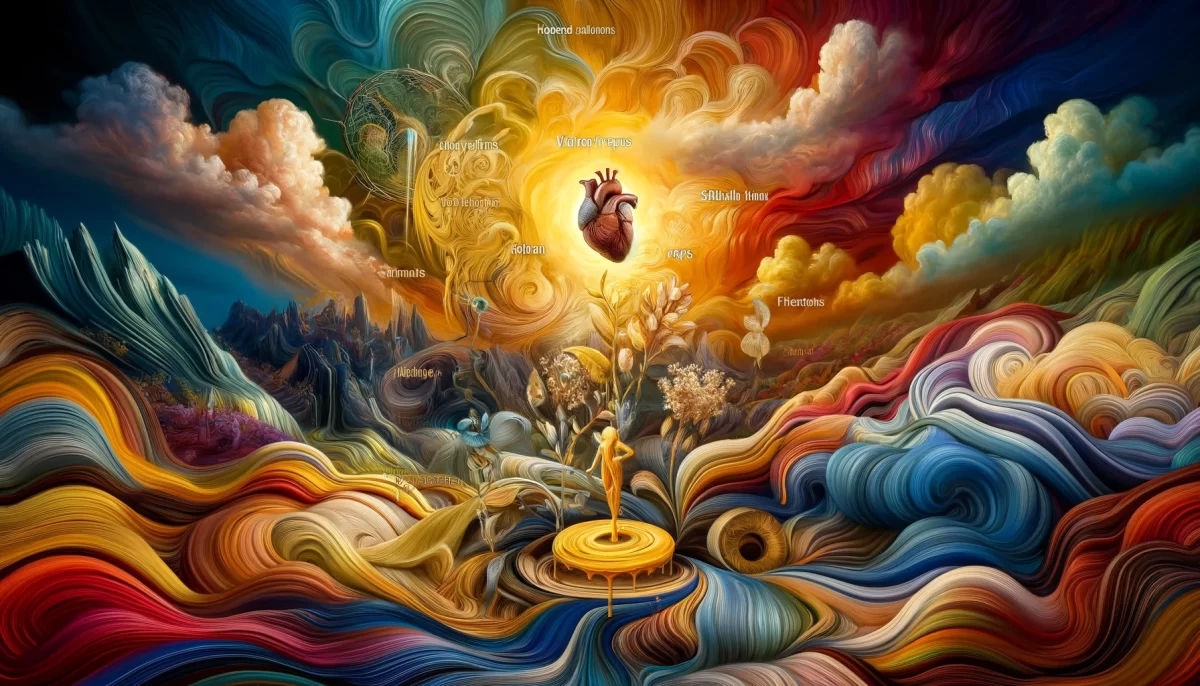
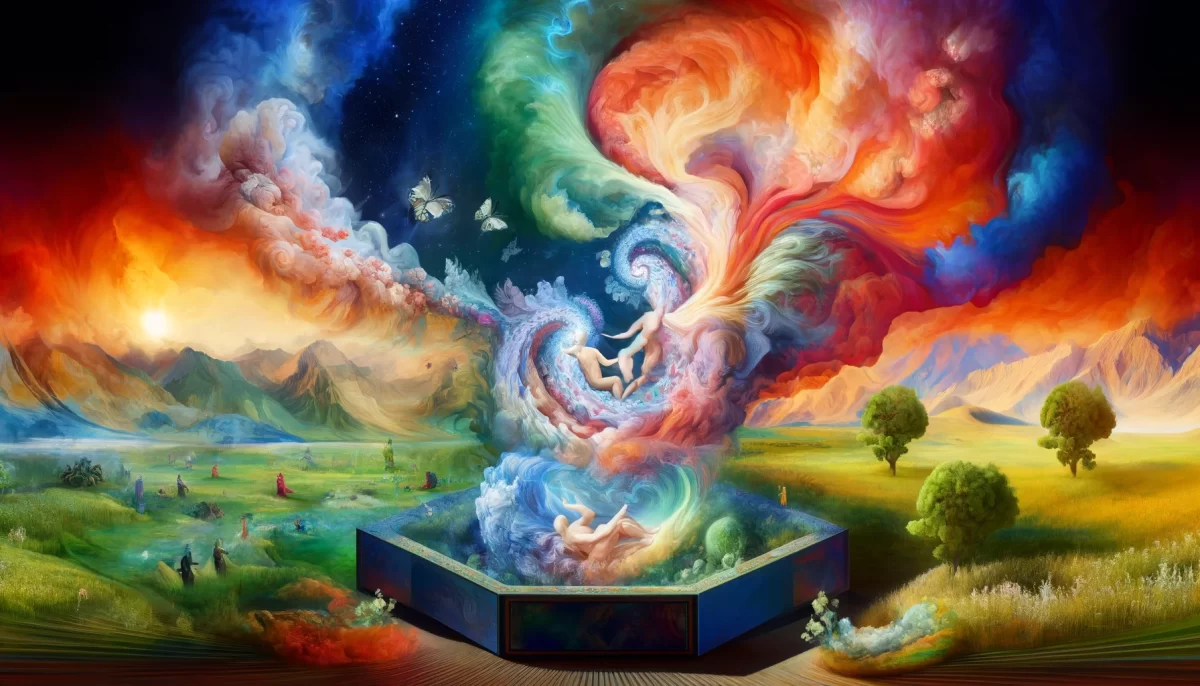
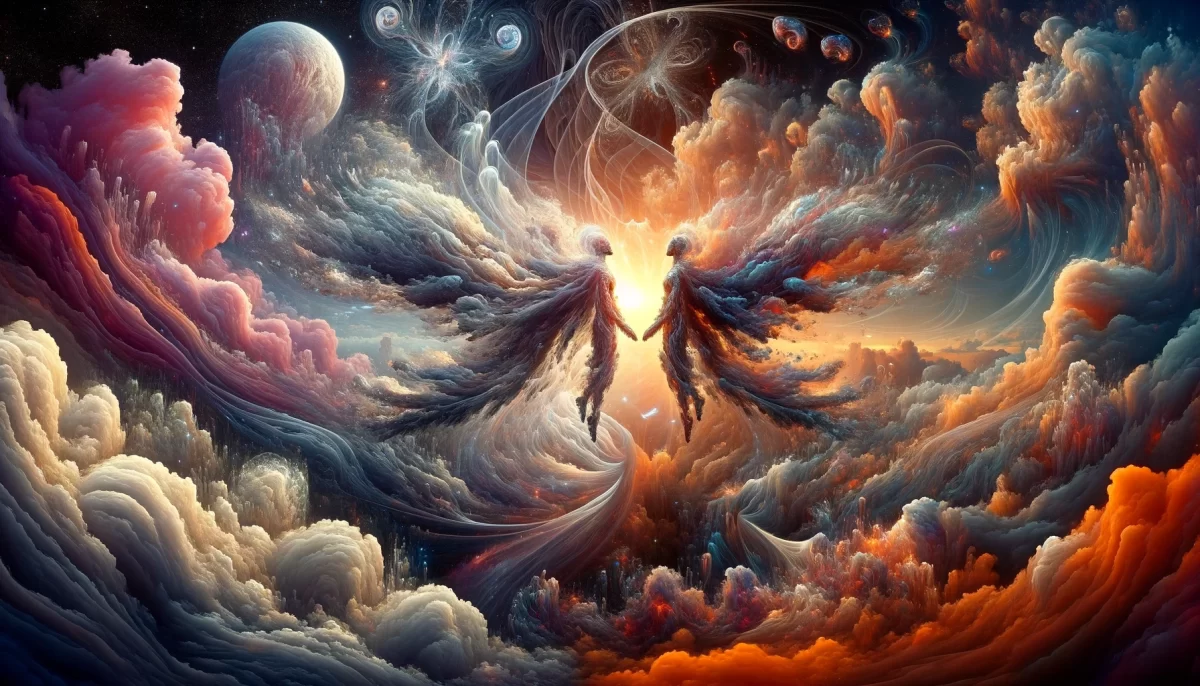
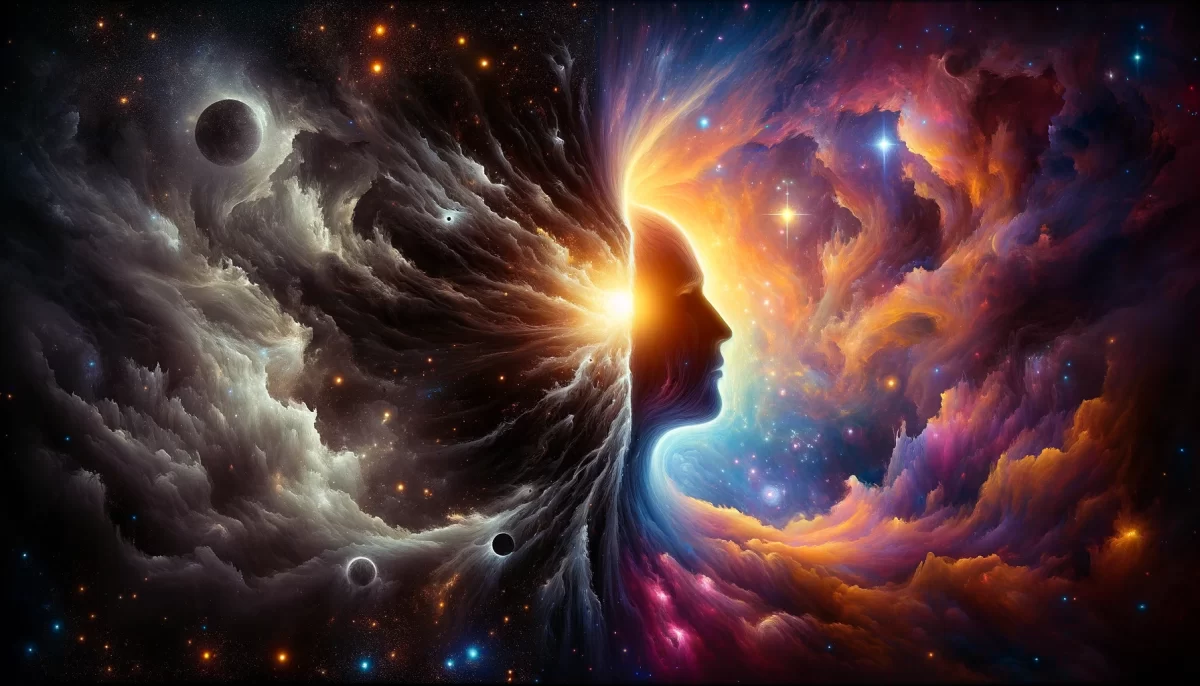
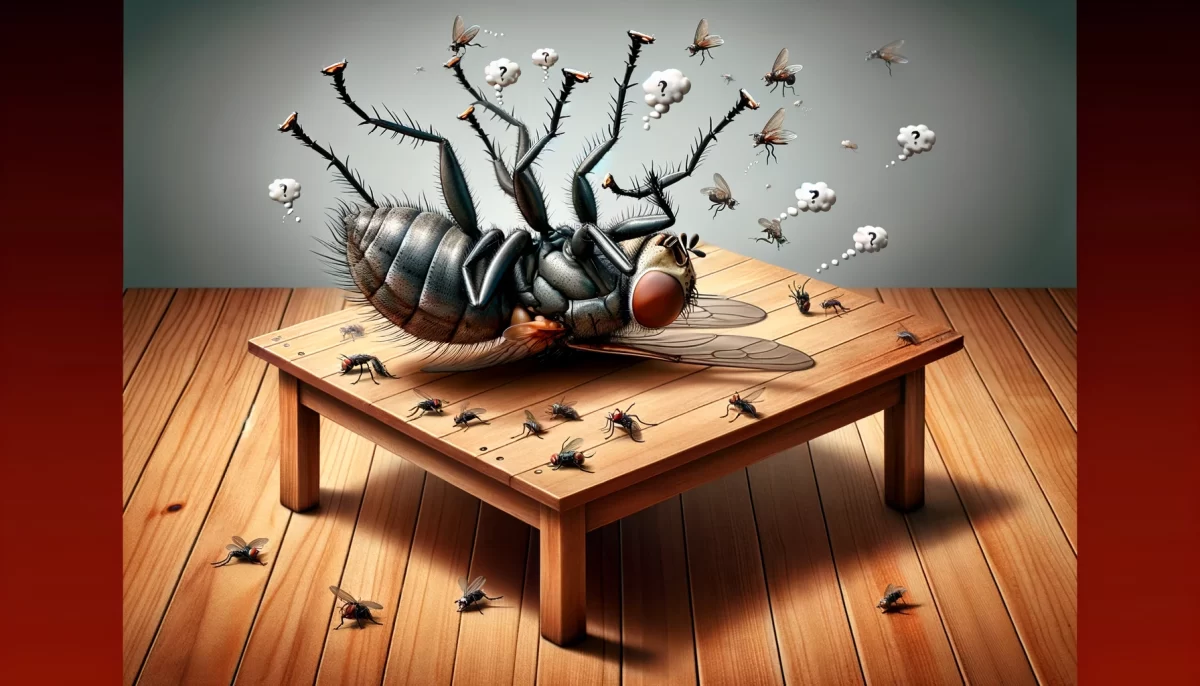
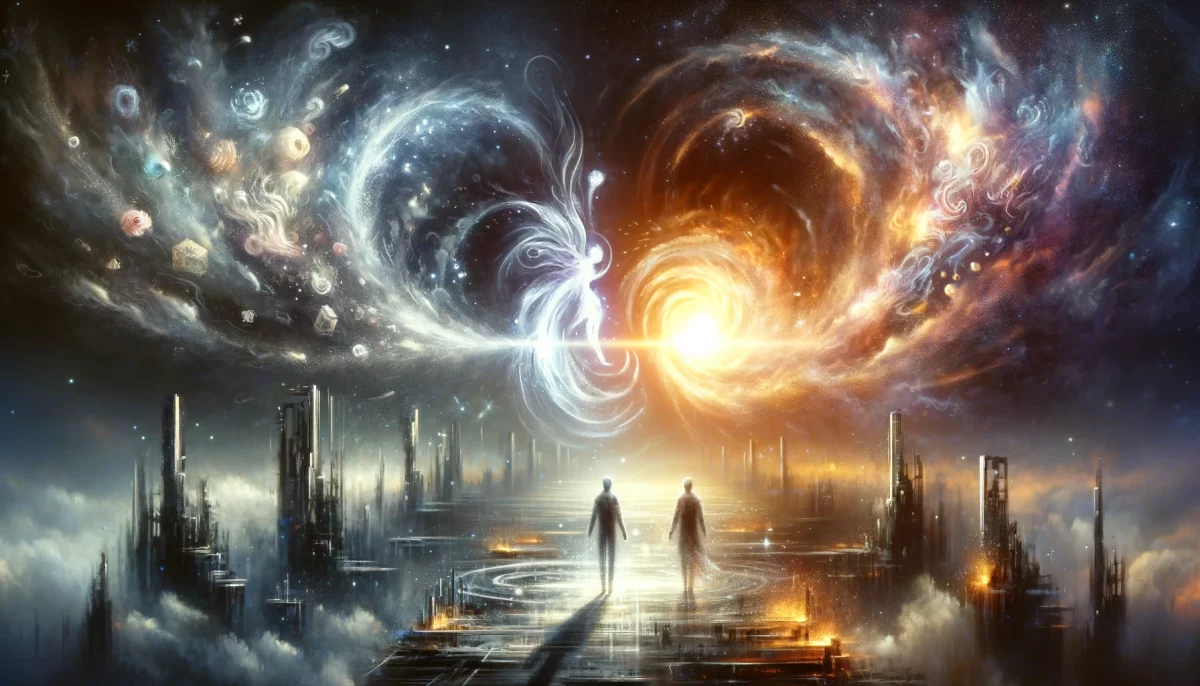
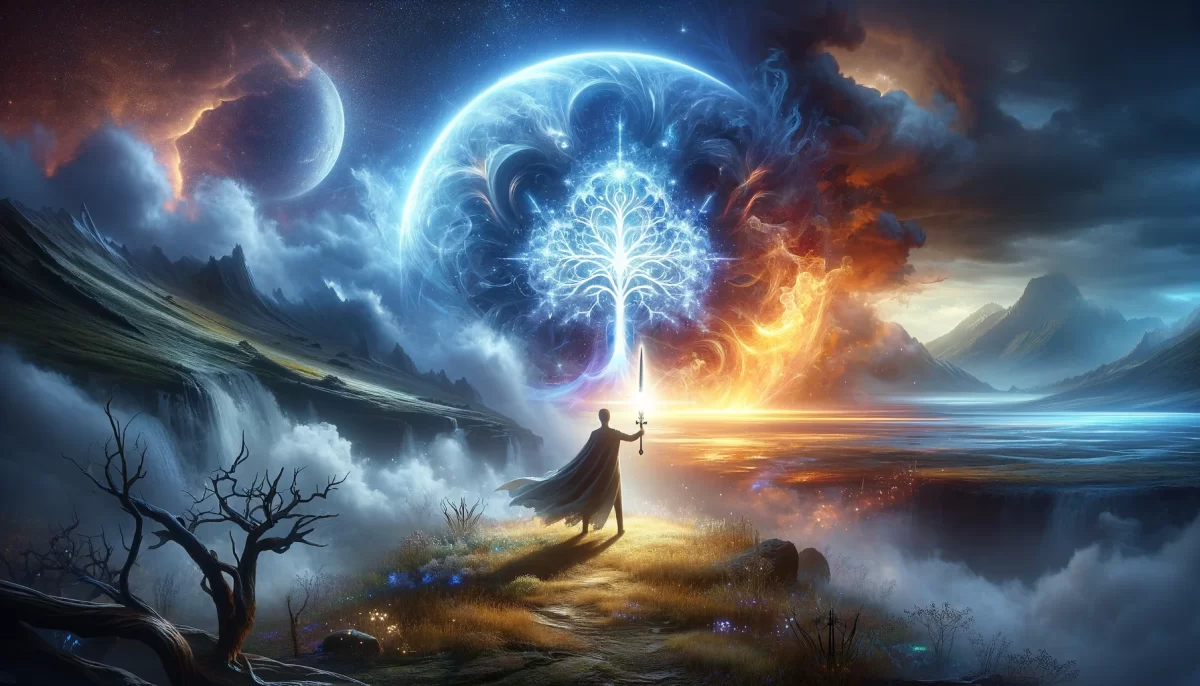
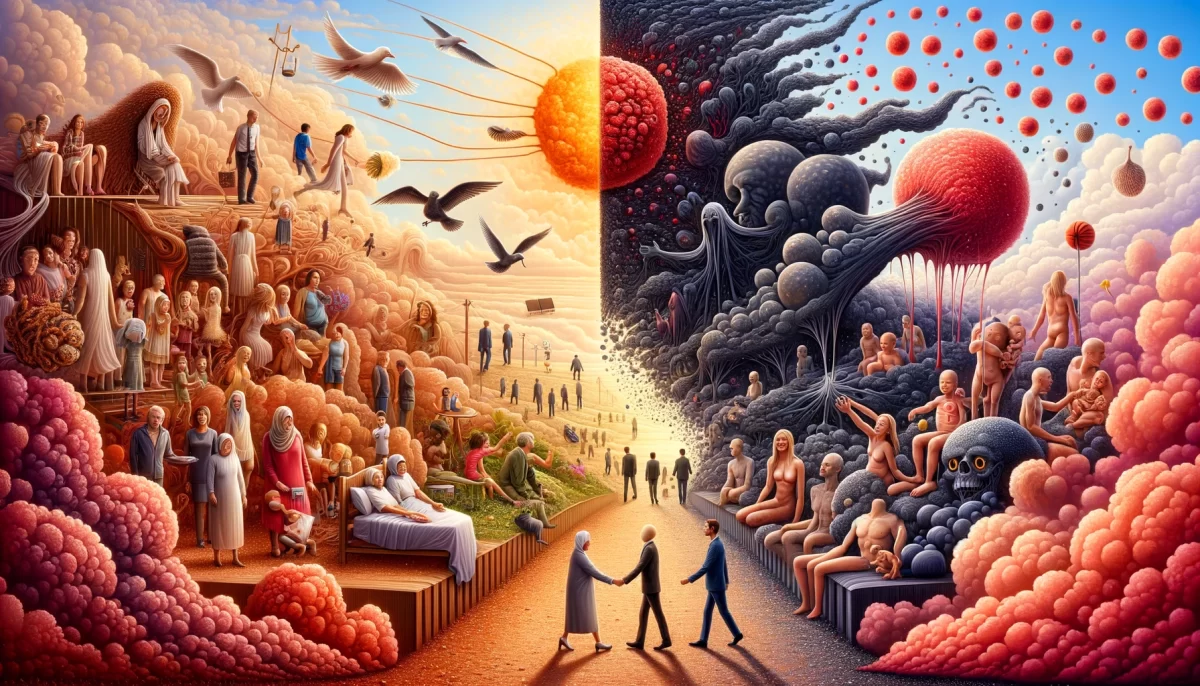
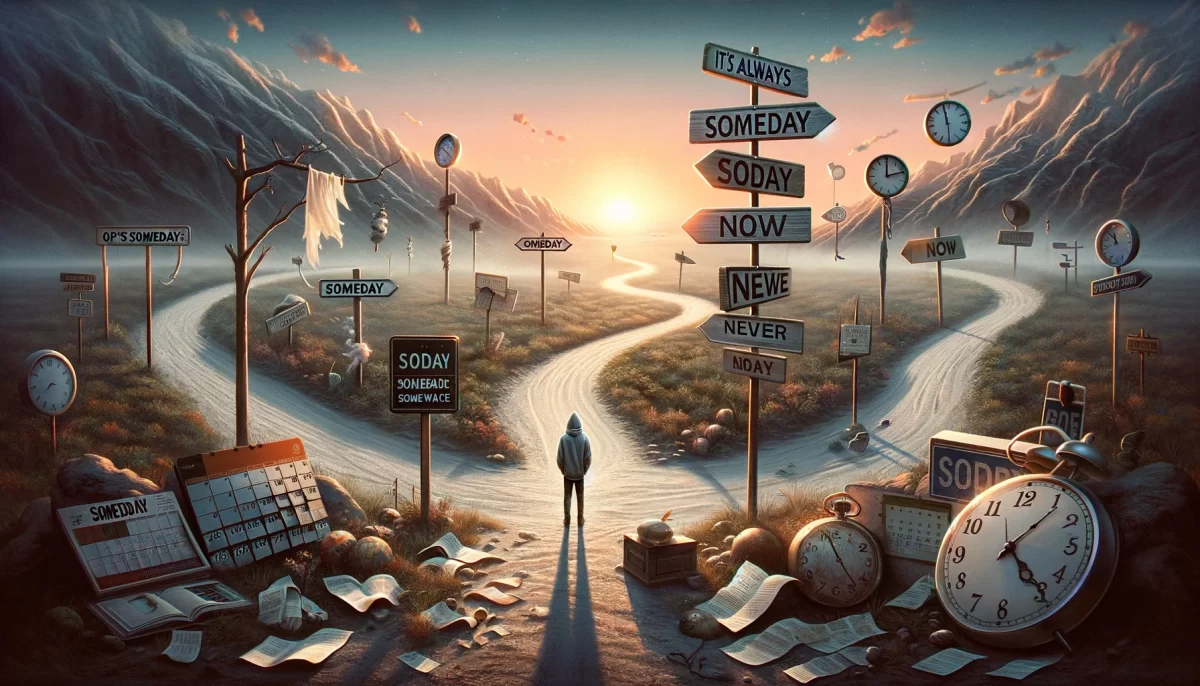
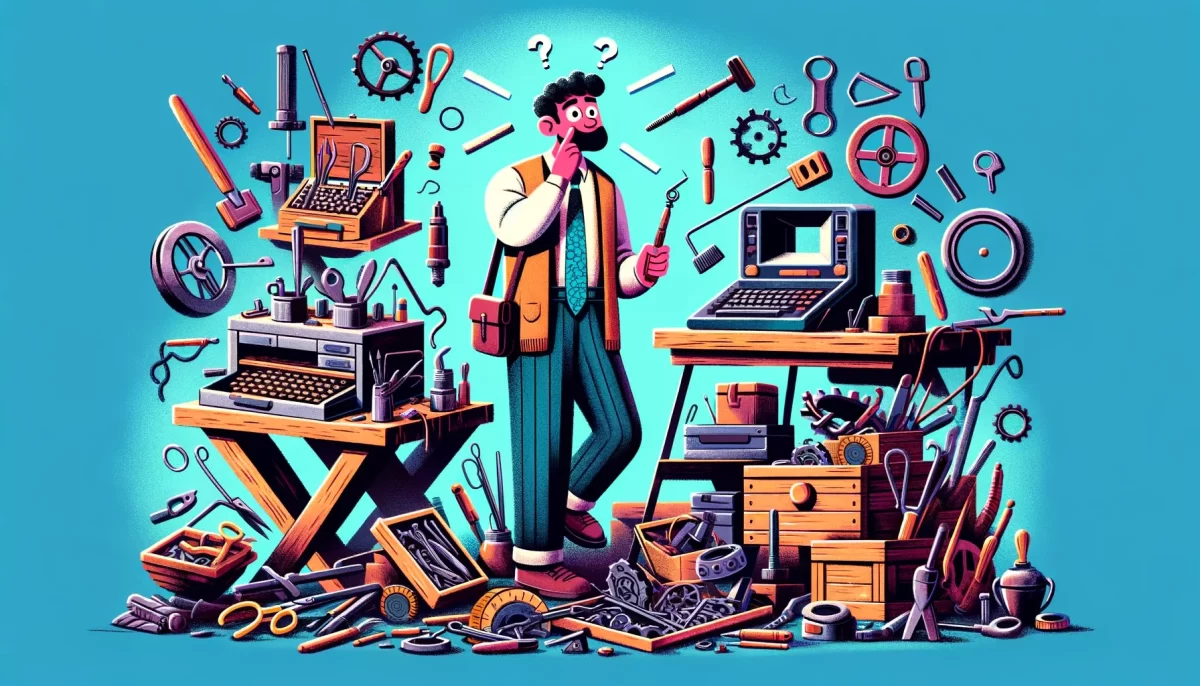
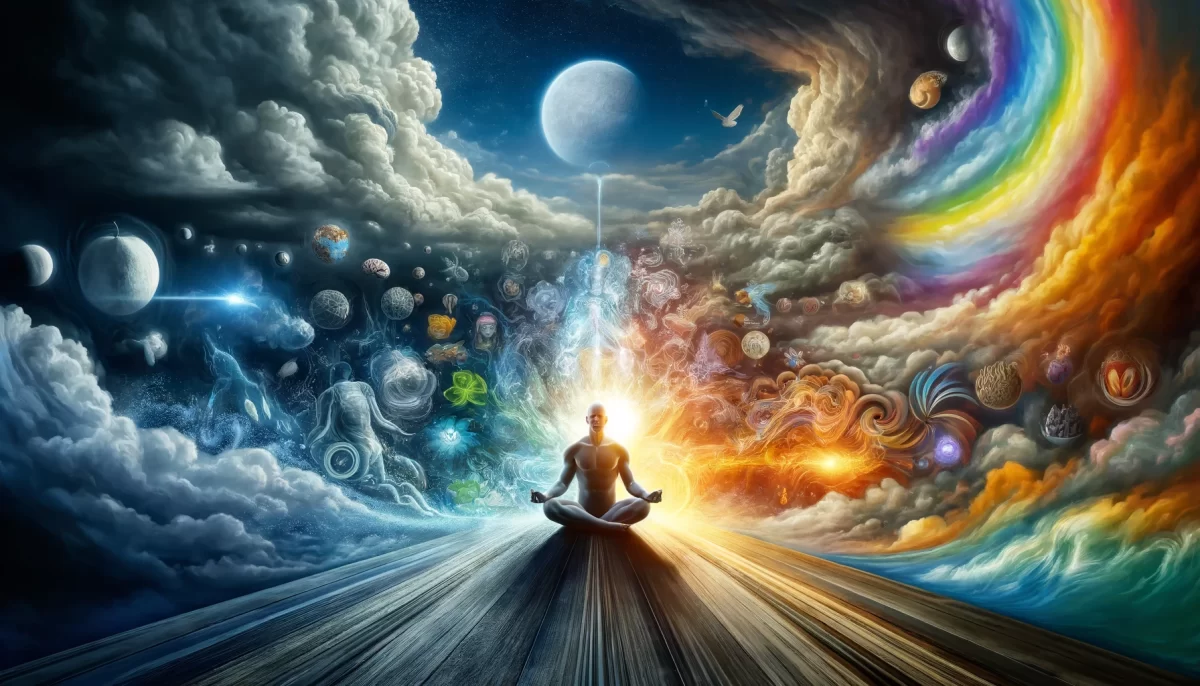

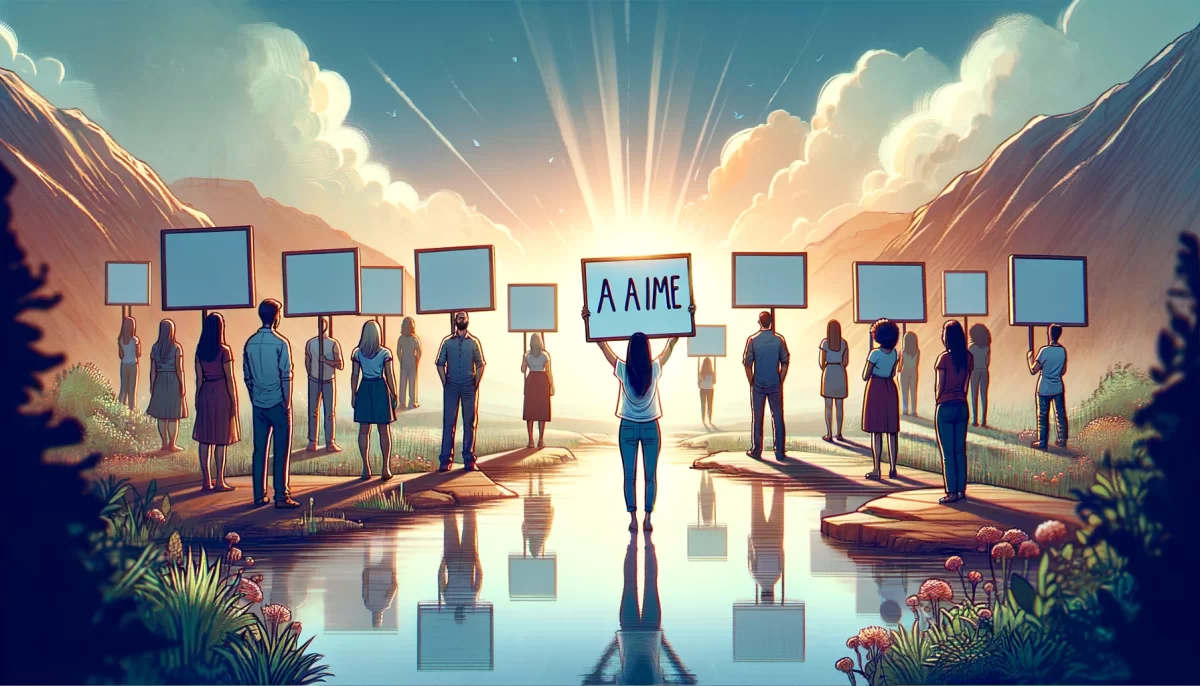
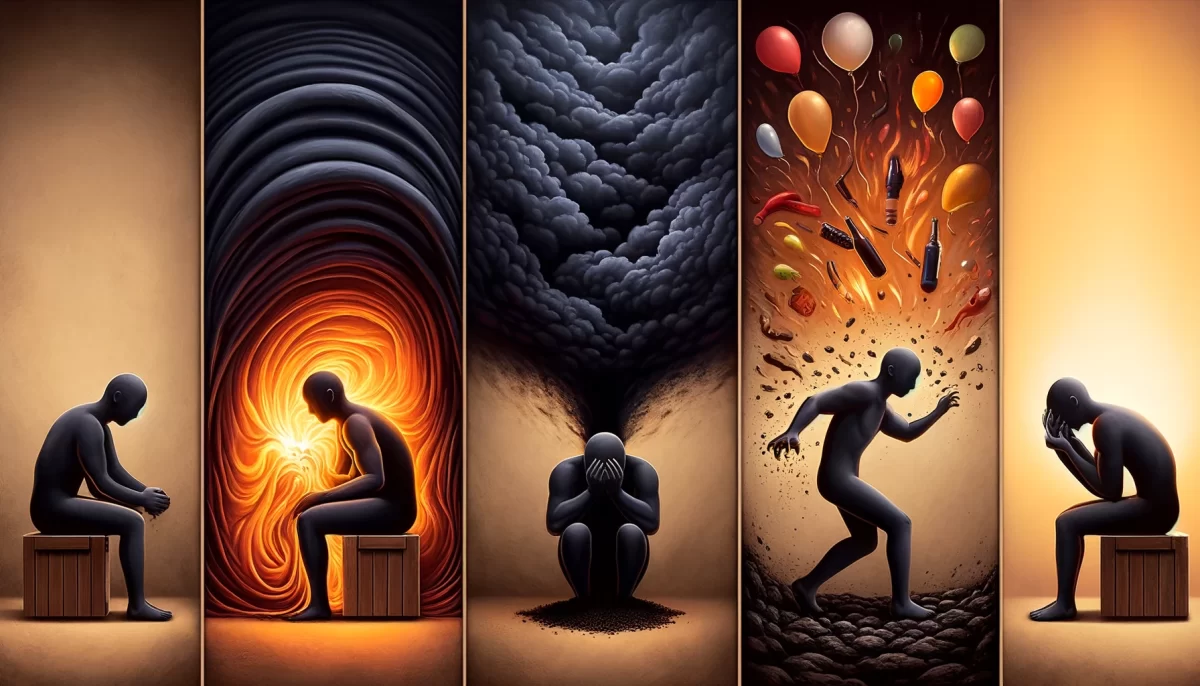
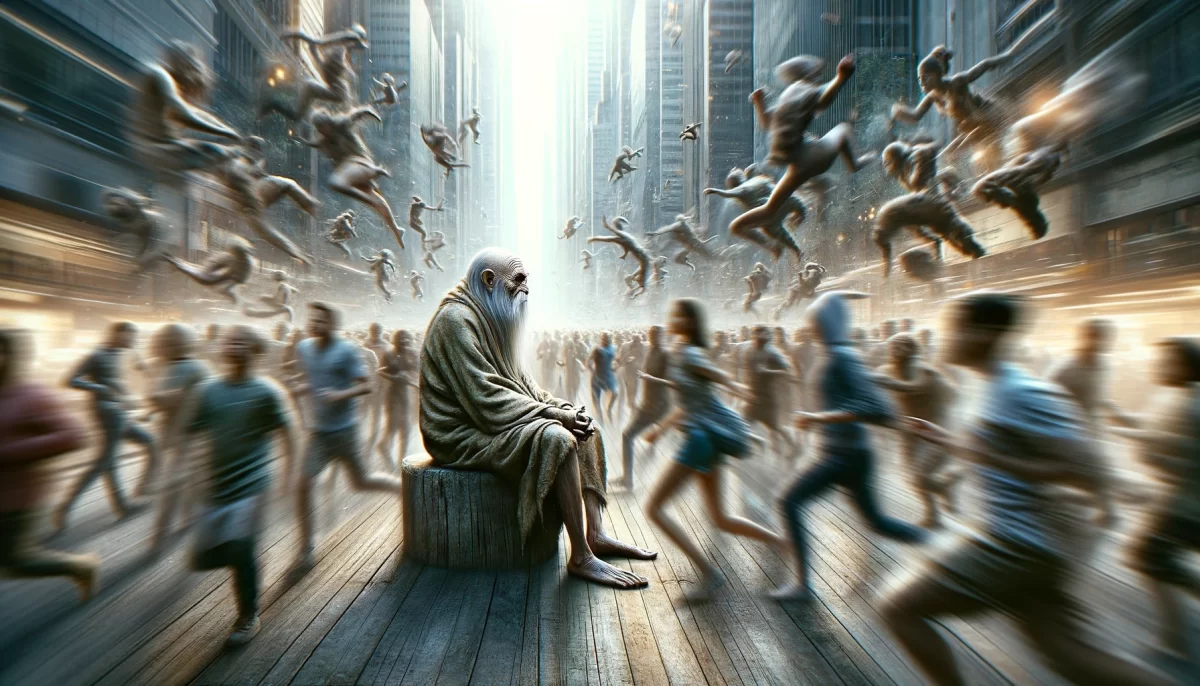

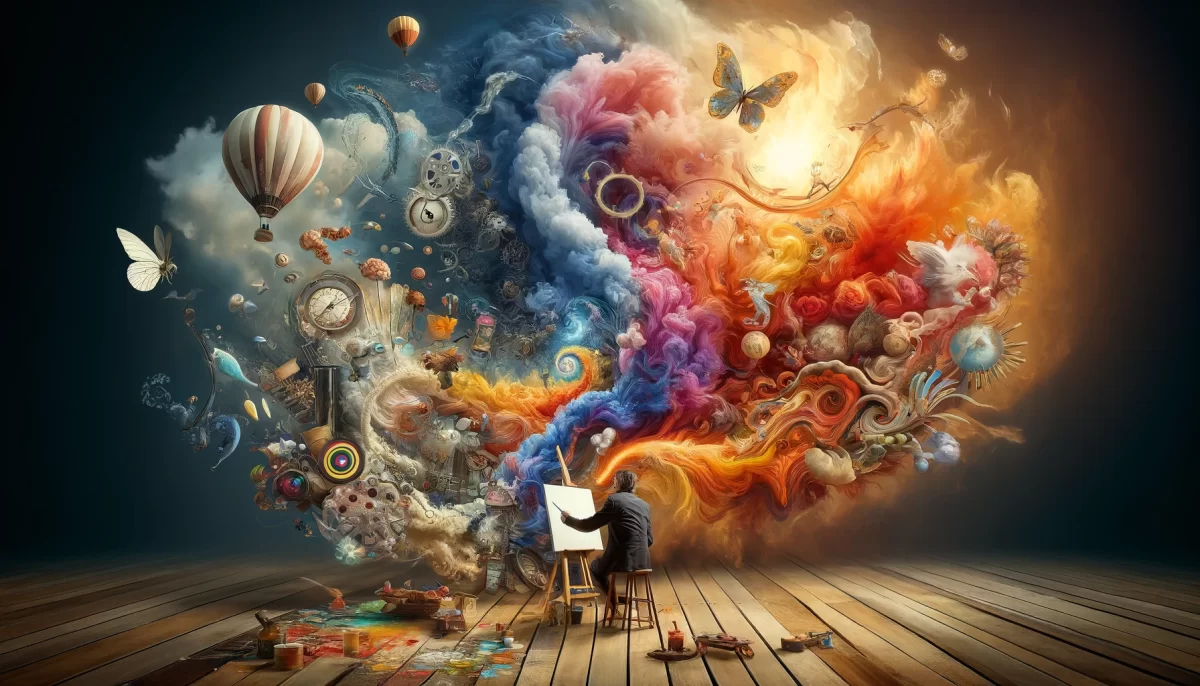

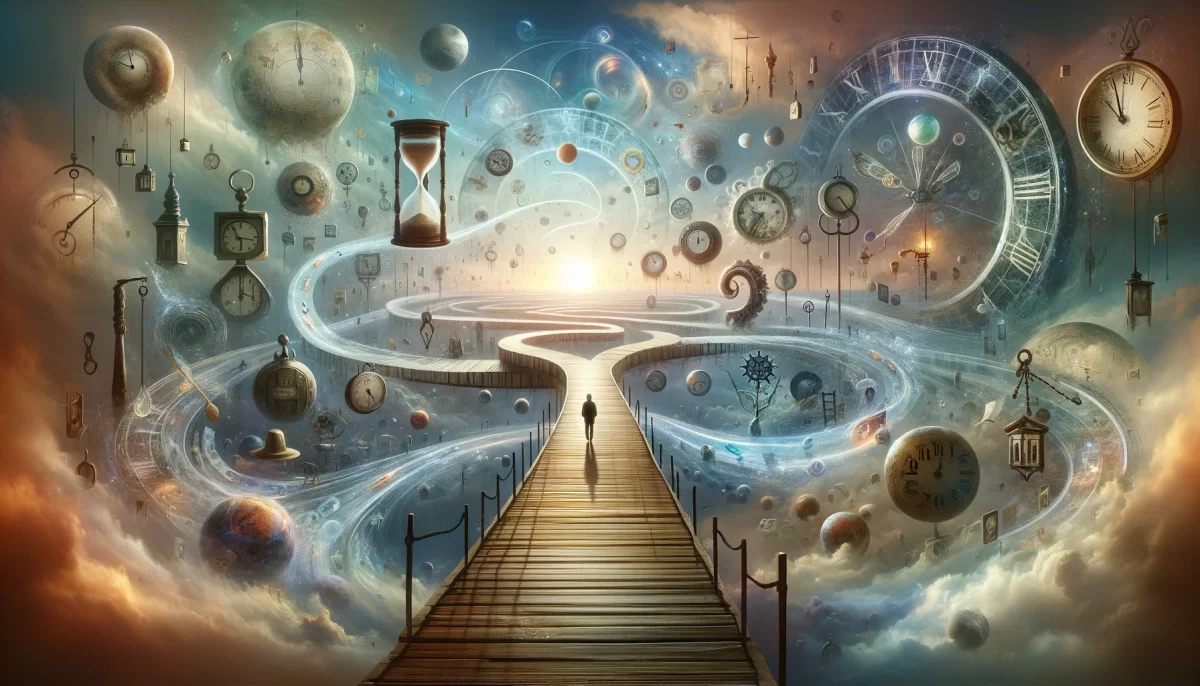
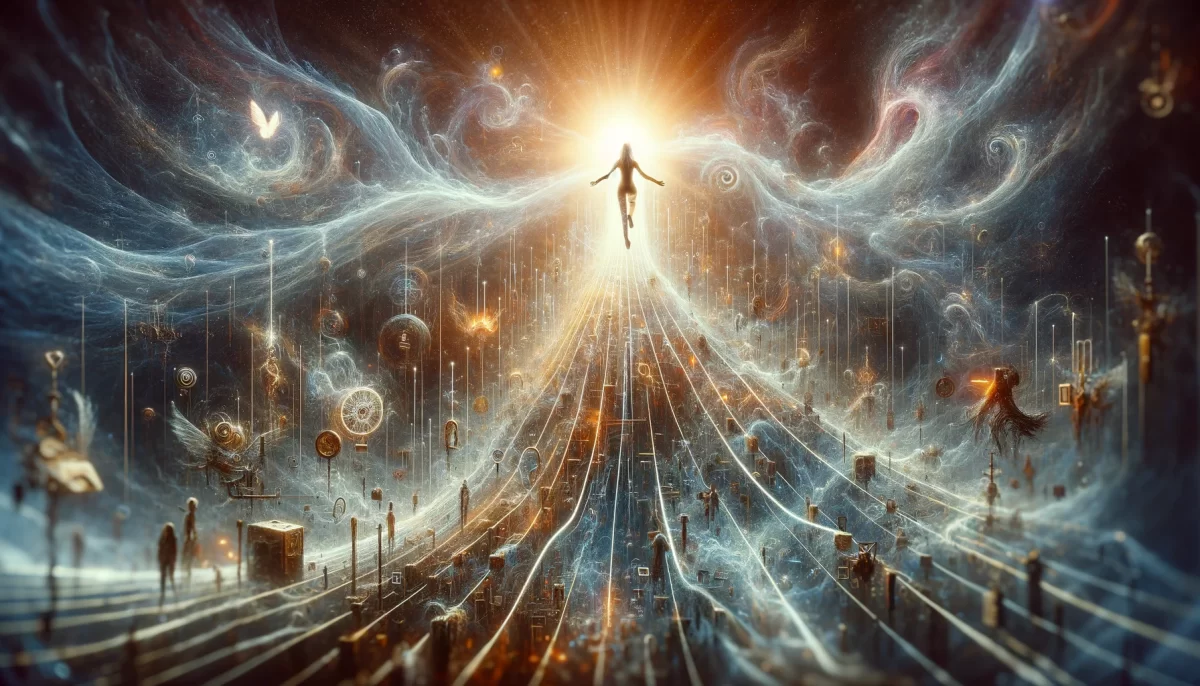
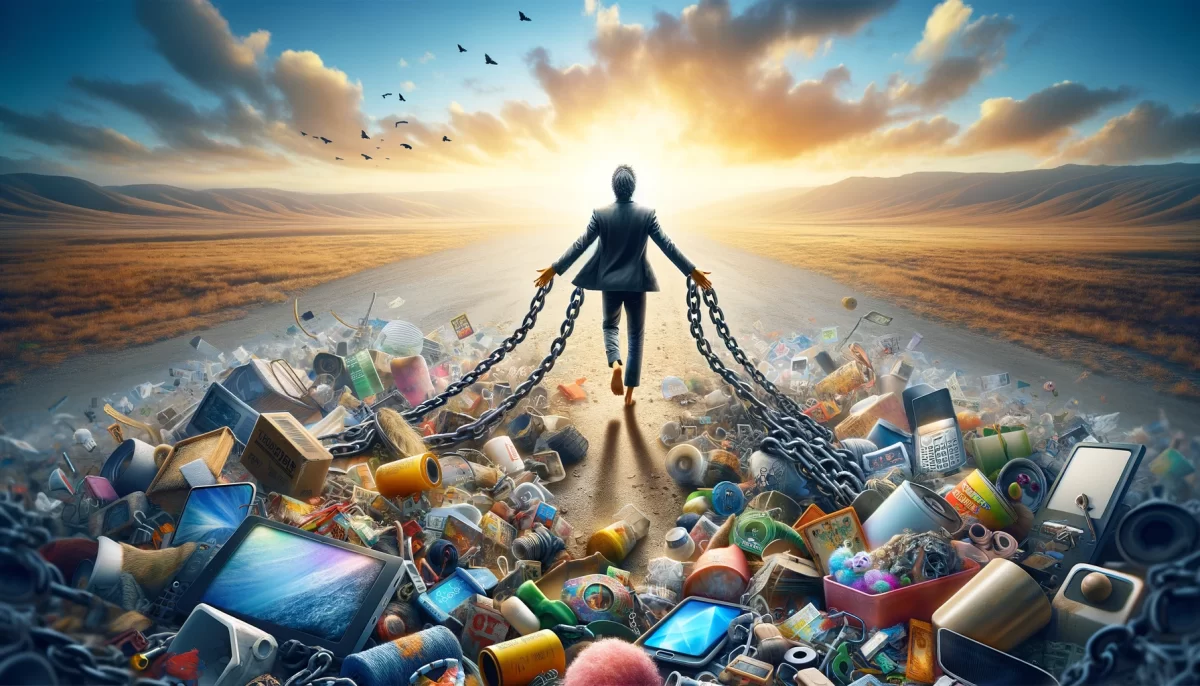
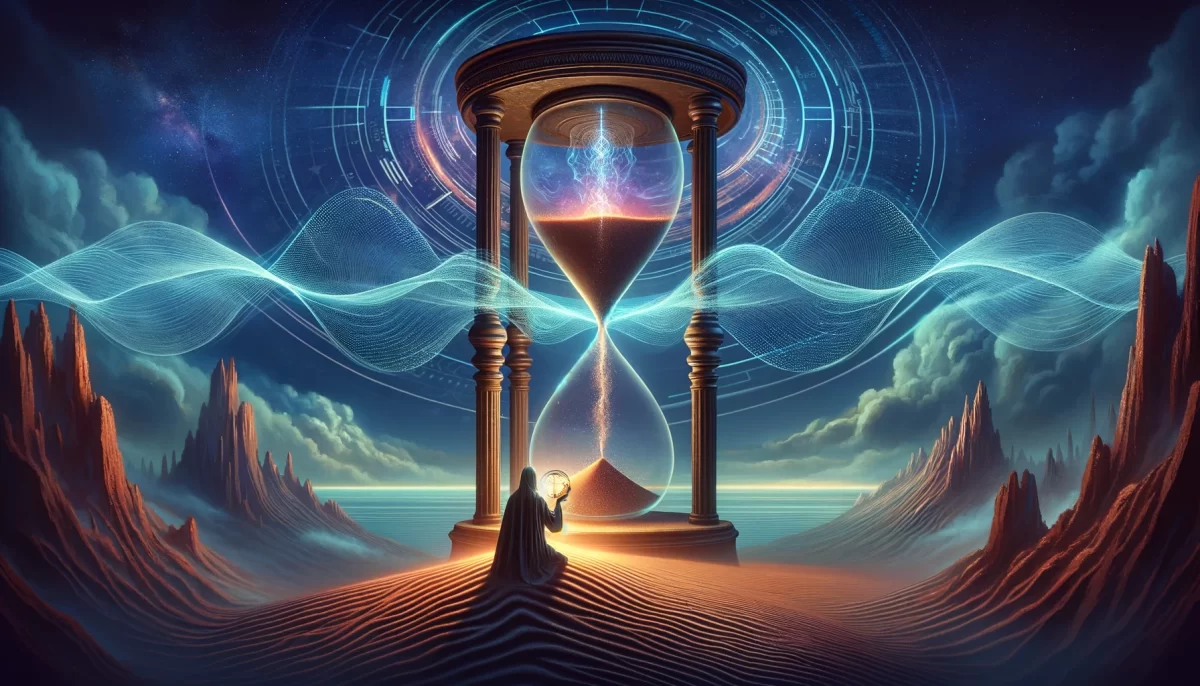
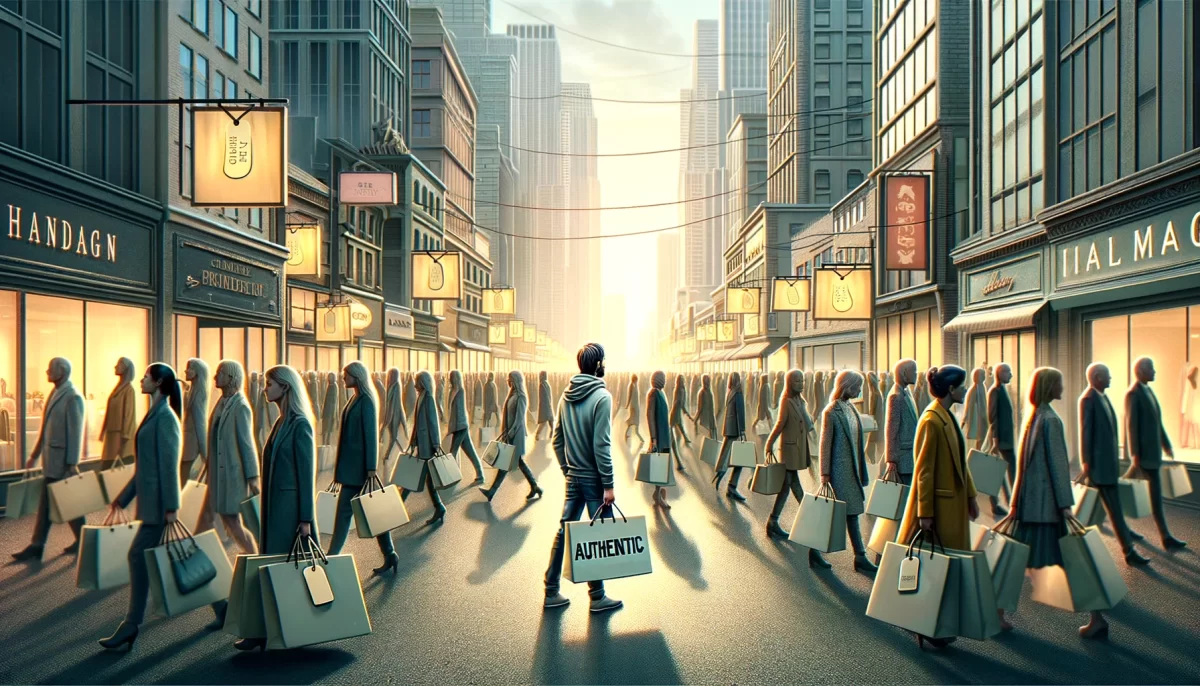
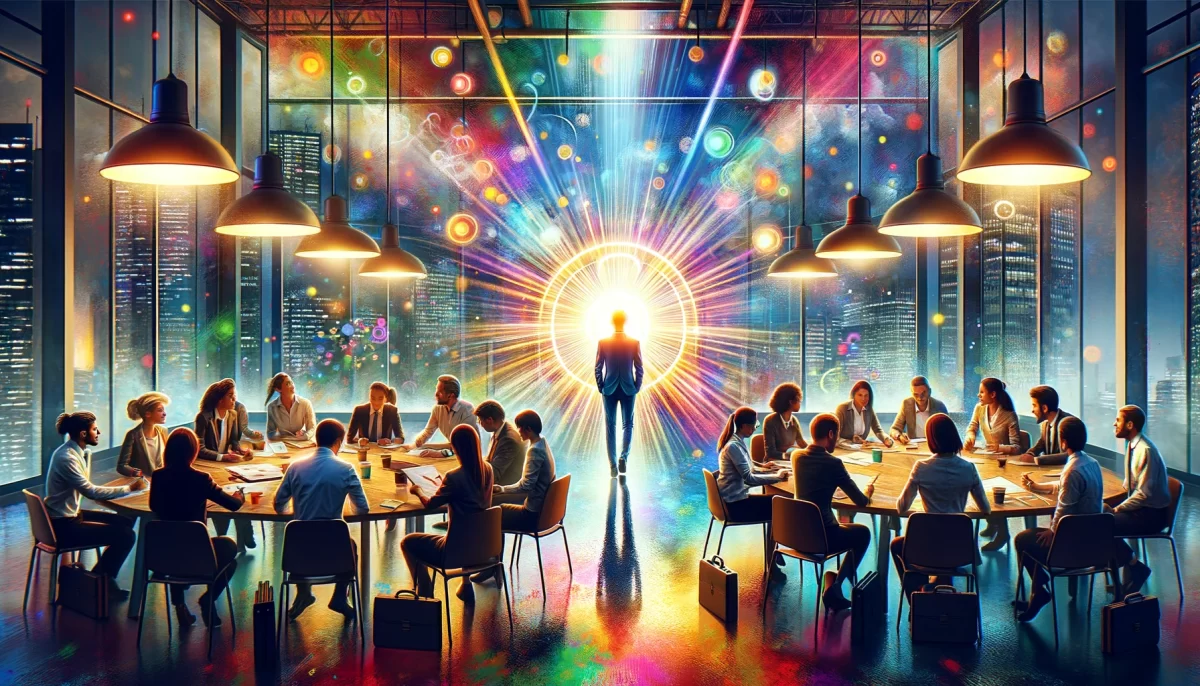

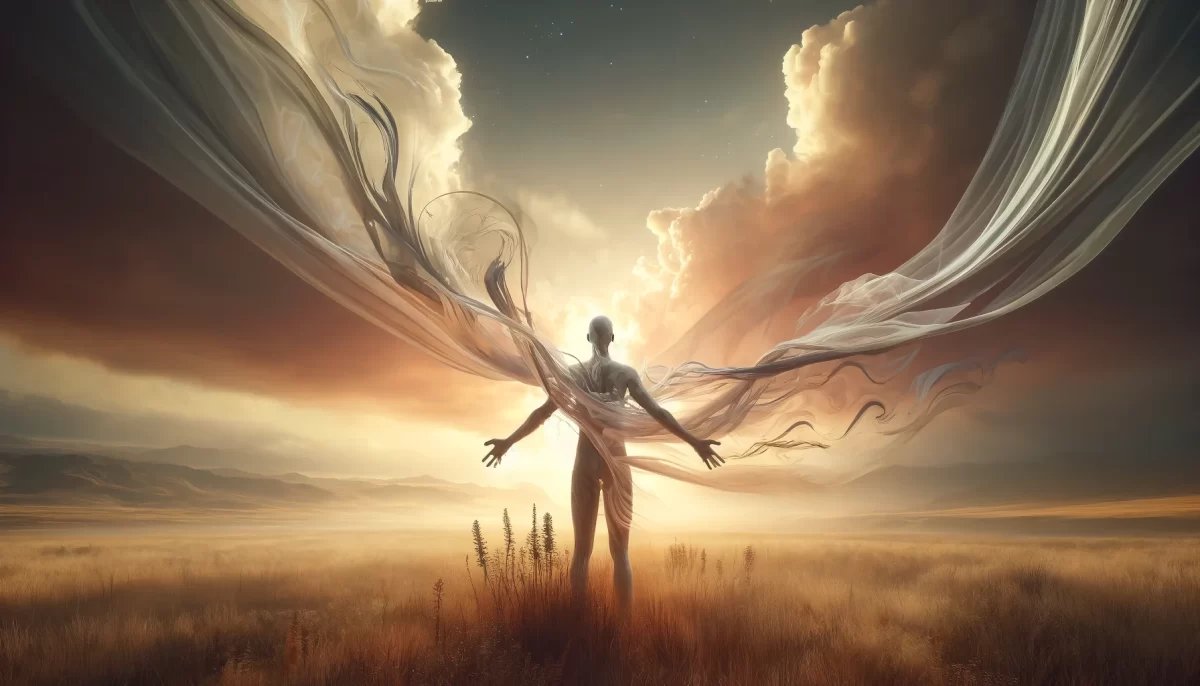

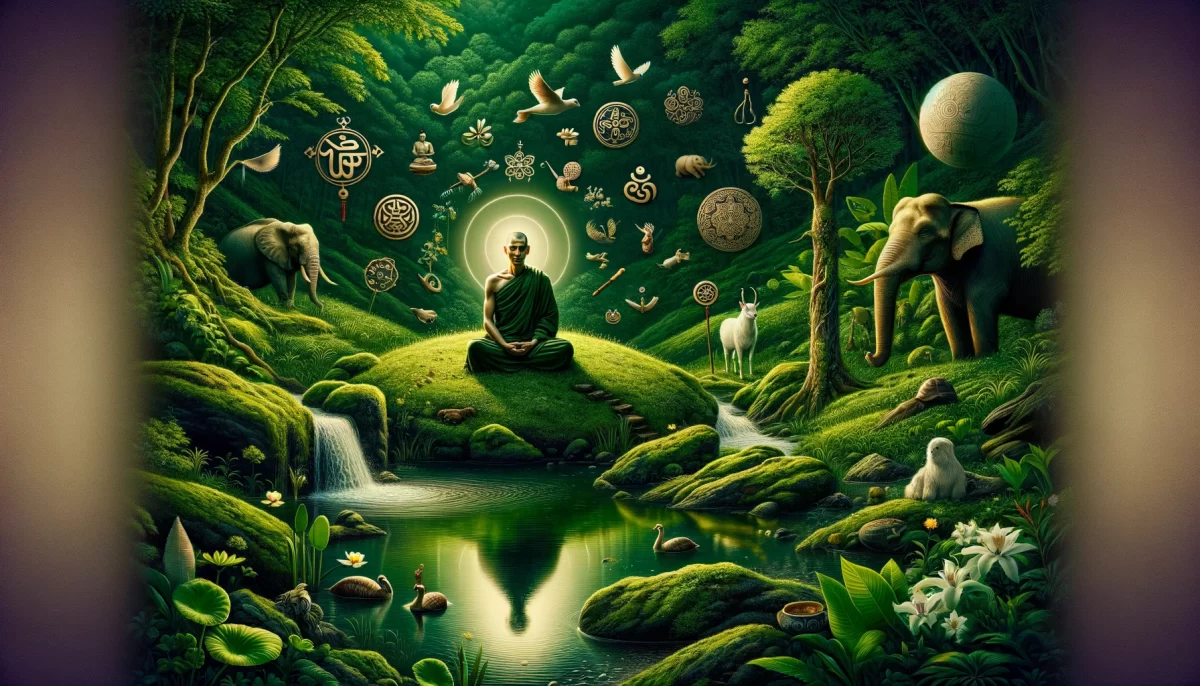
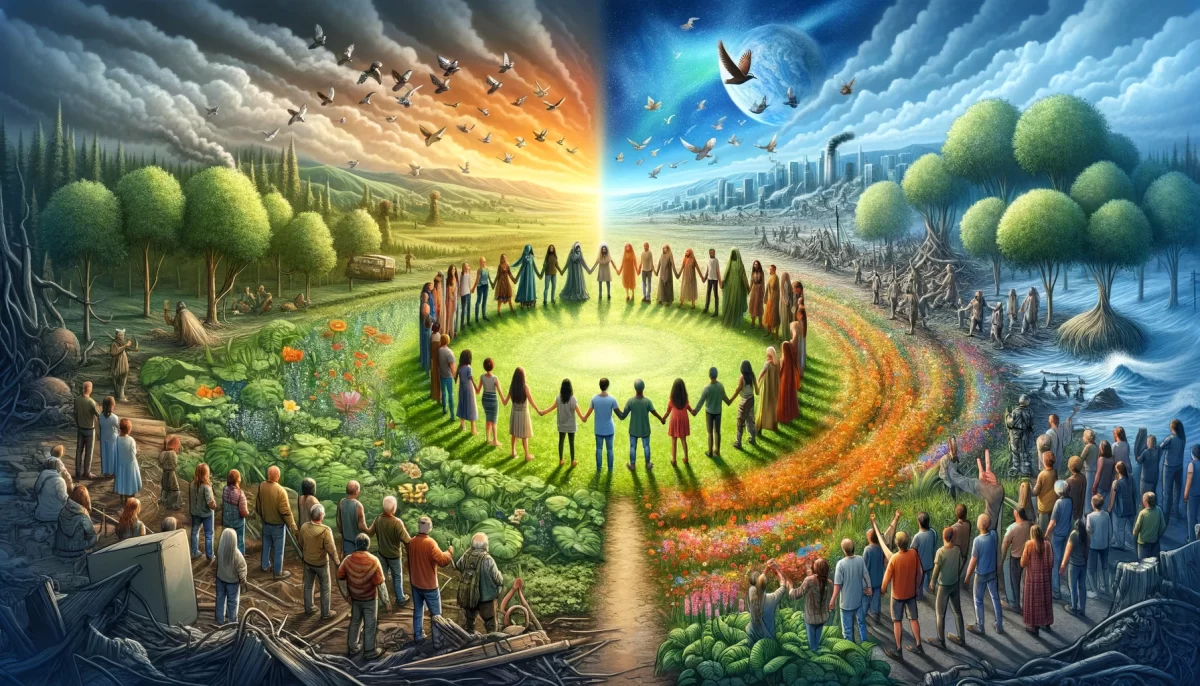
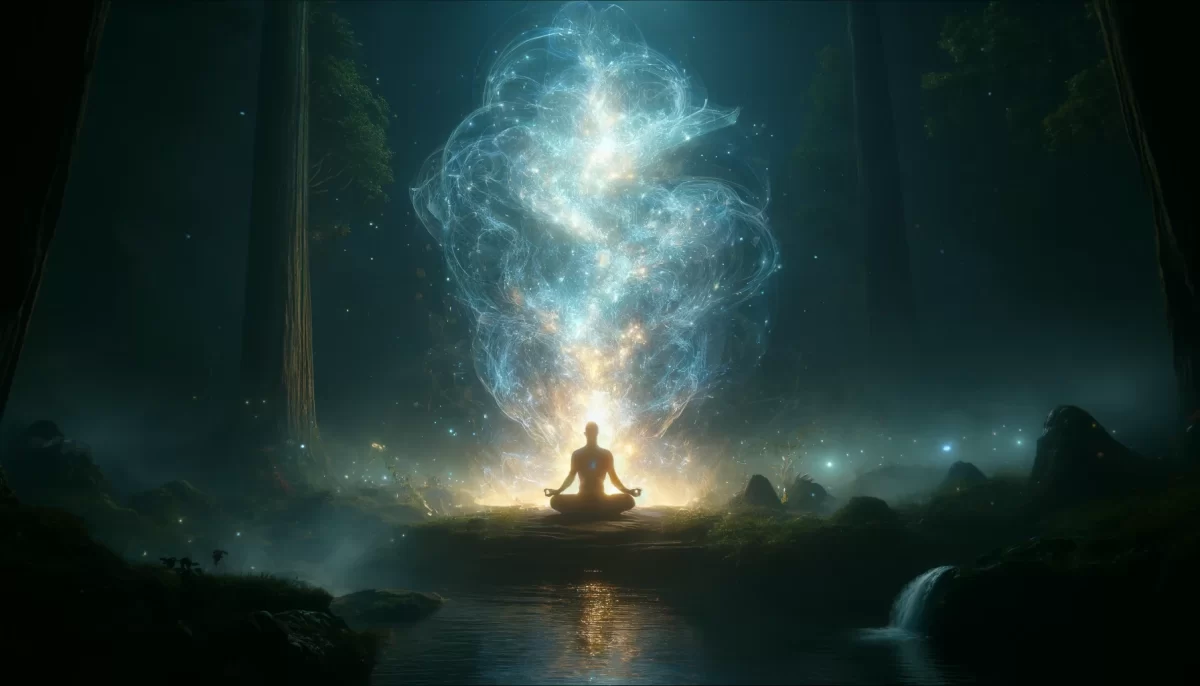
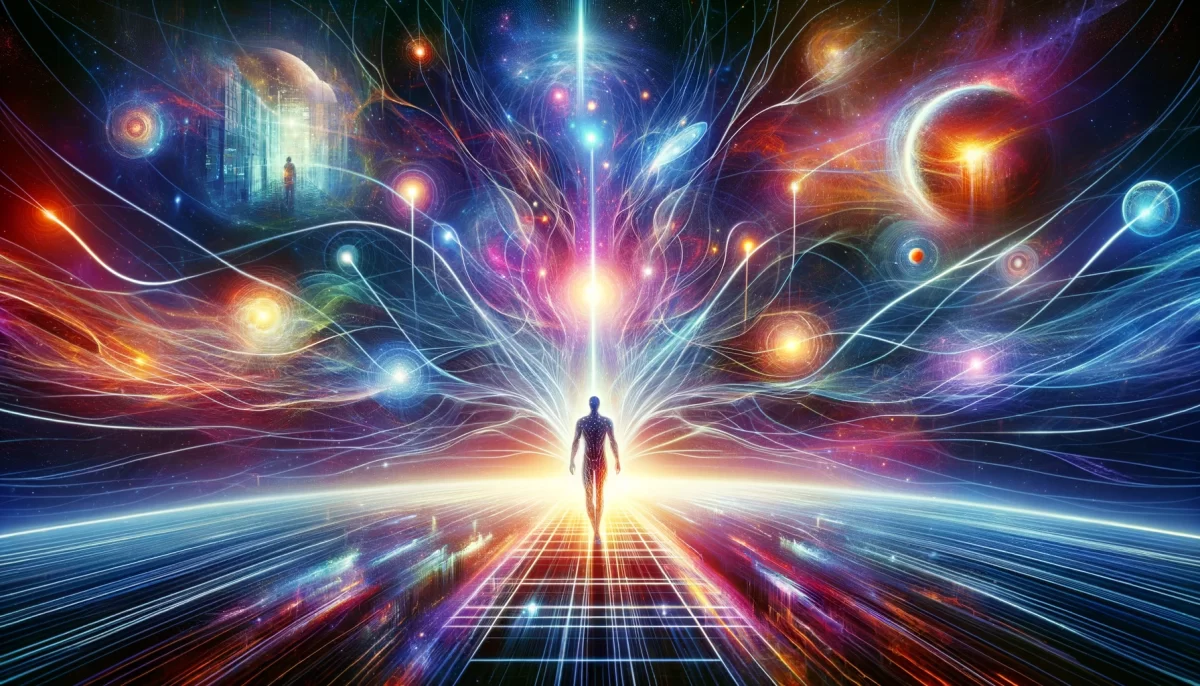
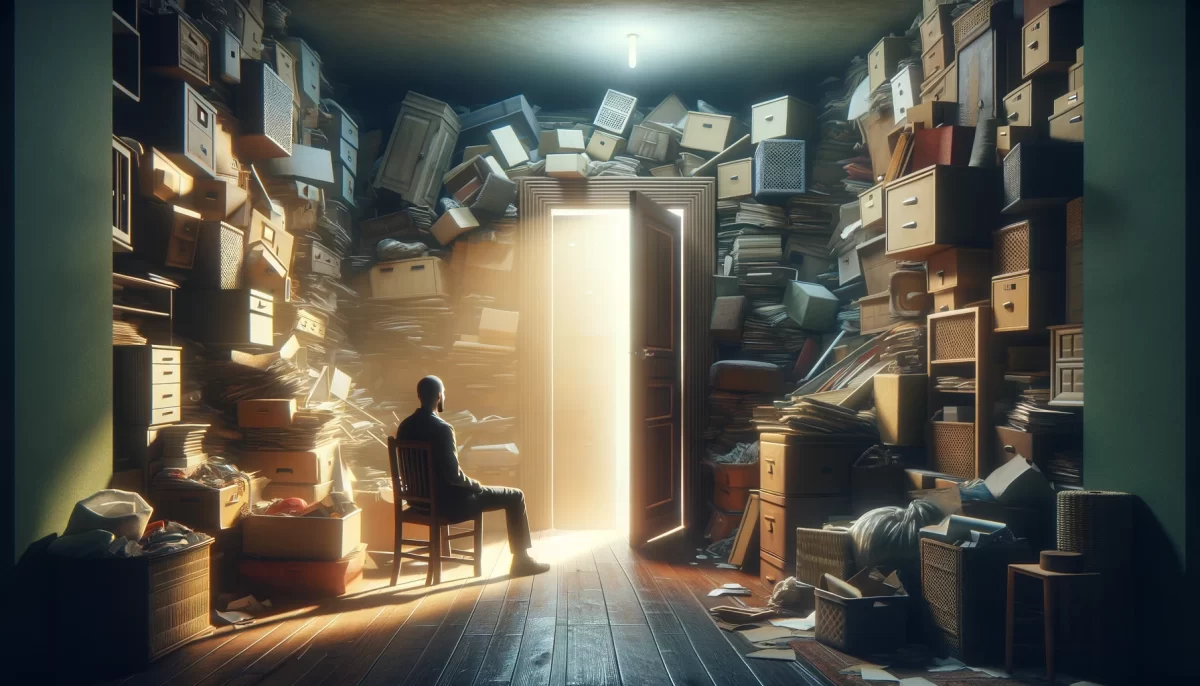
The text discusses the concept of dissociation, which is a psychological state where a person disconnects or dissociates from their surroundings, thoughts, feelings, or identity. Dissociation can happen to different degrees, ranging from normal everyday occurrences, such as daydreaming or getting lost in thought, to more severe experiences, such as dissociative disorders or trauma-related dissociation.
The text suggests that being fully present in the moment is a difficult task, as people tend to dissociate from the present moment and get lost in thoughts about the past or future. This can be detrimental, as it takes away from fully experiencing life as it happens in the present. The text also highlights the role of the ego in this dissociation, as it constantly seeks to compare and judge the present moment against some idealized version of reality.
Furthermore, the text points out that dissociation is not inherently bad or good, as it is a necessary part of the human experience that helps create our perception of reality. However, it is important to recognize when dissociation becomes problematic and learn how to control it in order to experience life fully.
Overall, the text encourages readers to be more mindful and present in their daily lives, and to recognize the role that dissociation plays in their experiences. It suggests that by doing so, we can better understand ourselves and the world around us, and live more fulfilling lives.